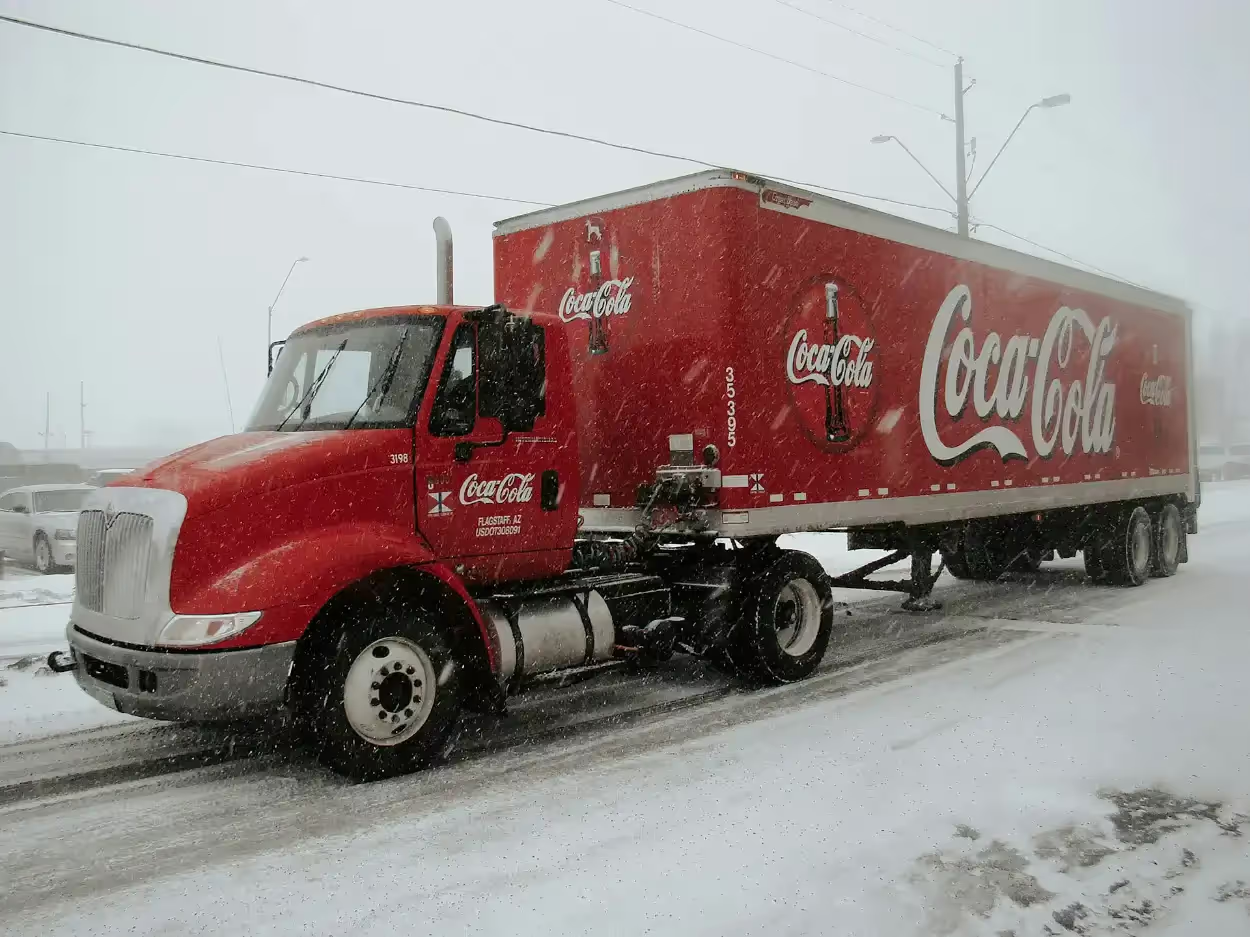Diesel fuel gelling can stall your truck in freezing conditions. Prevent it with winterized fuel, anti-gel additives, fuel heaters, and regular filter maintenance.

When the mercury drops, diesel truck owners face unique challenges. Chief among these is the risk of diesel fuel gelling, a phenomenon that can grind your operations to a halt if left unchecked. While those in warmer locales, like our neighbors here in Oxnard, CA, might not encounter gelling as often, knowing how to handle extreme weather is crucial—especially for truckers crossing state lines or heading into colder regions.
In this article, we’ll explore what diesel fuel gelling is, why it happens, and how to prevent your diesel fuel system from succumbing to winter woes.
What Is Diesel Fuel Gelling?
In cold temperatures, paraffin wax, a natural component of diesel, begins to solidify. As temperatures drop, this wax crystallizes, thickening the fuel and eventually clogging the filter. This process is known as gelling, and it typically occurs when temperatures hit around 10-15°F. Gelling can happen even sooner for biodiesel blends, as biodiesel has a higher freezing point than conventional diesel.
When your fuel gels, it restricts flow to the fuel injectors, starving the engine of fuel and causing it to sputter or stall.
How to Identify and Prevent Diesel Fuel Gelling
Warning Signs of Gelling
The earlier you catch a gelling problem, the better. Here are some key symptoms:
- Loss of Power: If your engine feels sluggish or won’t rev properly, it might not get enough fuel.
- Hard Starting: Gelled fuel can make starting your engine feel like a losing battle.
- Fuel Filter Issues: If your filter clogs frequently in cold weather, it’s likely due to gelling.
Prevention Tips
An ounce of prevention is worth a pound of cure when it comes to diesel gelling. Here’s what you can do:
1. Use Winterized Diesel Fuel
Many fuel stations in colder climates sell winterized diesel, a blend specifically formulated to resist gelling. This fuel includes additives that lower its cloud point (the temperature at which wax crystals begin to form).
2. Add Anti-Gel Additives
For truckers venturing into frosty weather, anti-gel fuel additives are a lifesaver. These products reduce the fuel’s pour point and keep the wax in suspension, ensuring smooth flow. Be sure to follow the manufacturer’s instructions for optimal results.
3. Maintain Proper Fuel Levels
Never let your fuel tank drop too low during winter. A fuller tank minimizes condensation, reducing the likelihood of water contamination that could freeze and exacerbate gelling.
4. Install a Fuel Heater
Fuel heaters are an excellent investment for trucks regularly operating in icy conditions. These devices warm the fuel before it reaches the filter, preventing wax from crystallizing.
5. Check and Replace the Fuel Filter
Your fuel filter is the first line of defense against gelled fuel. Replacing it regularly ensures it remains effective in colder temperatures. A dirty filter will only amplify gelling problems.
6. Keep Your Truck Warm
Park your truck in a heated garage or use an engine block heater when temperatures plummet. Keeping your truck warm overnight can prevent gelling and ensure it starts smoothly in the morning.
What to Do If Your Fuel Gels
Even with the best prevention, accidents happen. If your fuel has gelled, here’s how to get back on the road:
- Warm the Truck: Move your vehicle to a warm location or use a fuel heater to thaw the gelled fuel. This can take some time, but it’s often the safest solution.
- Use a Diesel Thaw Additive: Diesel thaw additives are designed to break down wax crystals and restore fuel flow. Add the product to your tank, following the instructions carefully.
- Replace the Fuel Filter: Once the fuel has thawed, replace your filter to remove any residual wax and ensure proper fuel flow.
- Seek Professional Assistance: If the issue persists, it’s time to call in the experts. A professional diesel repair shop can diagnose and resolve gelling-related issues quickly.
The Role of Preventive Maintenance
Preventive maintenance is the unsung hero of cold-weather readiness. Regularly inspecting and servicing your diesel fuel system, including the tank, lines, and injectors, can cause small problems before they snowball into major headaches. And remember, always choose high-quality fuel and additives to keep your truck running like a dream, no matter the weather.
Conclusion
Cold weather doesn’t have to spell disaster for your diesel truck. By understanding the science behind diesel fuel gelling and taking proactive steps to prevent it, you can keep your rig running smoothly, even in the harshest conditions. Whether winterizing your fleet for a long haul or tackling last-minute gelling issues, a little preparation goes a long way.
And hey, if you’re in the Oxnard, CA, area and need a hand, our diesel experts are always ready to help. Stay warm and drive safe!
News & Articles
Read About The Latest in Industry
Here, you'll find regular articles covering a wide range of topics related to diesel repair, maintenance, and troubleshooting.
Customer Testimonials
"We used Max diesel for our heavy equipment repairs ( loaders and excavators) and he was very professional and fare on his prices."
"Max is a very knowledgeable, courteous and professional mechanic. He is responsive and flexible. We had a turbo hose blow causing a regen problem with the DEF system on our F250 which caused us to be stranded at the RV park. He came to us and was able to resolve our issue. Buen trabajo"
"Very GOOD Mechanics for diesel trucks"
Contact Us
Max Dieseltronics provides professional mobile truck repair services to a 50 mile radius around Oxnard, California, including Santa Clarita, Santa Barbara, Thousand Oaks, Ventura, Simi Valley, Malibu, & more. Give us a call, send us an email, or fill out our service request form to get in touch!
Contact Information
Phone Number
Hours
7:00AM - 6:00PM
24/7
Emergency Services

